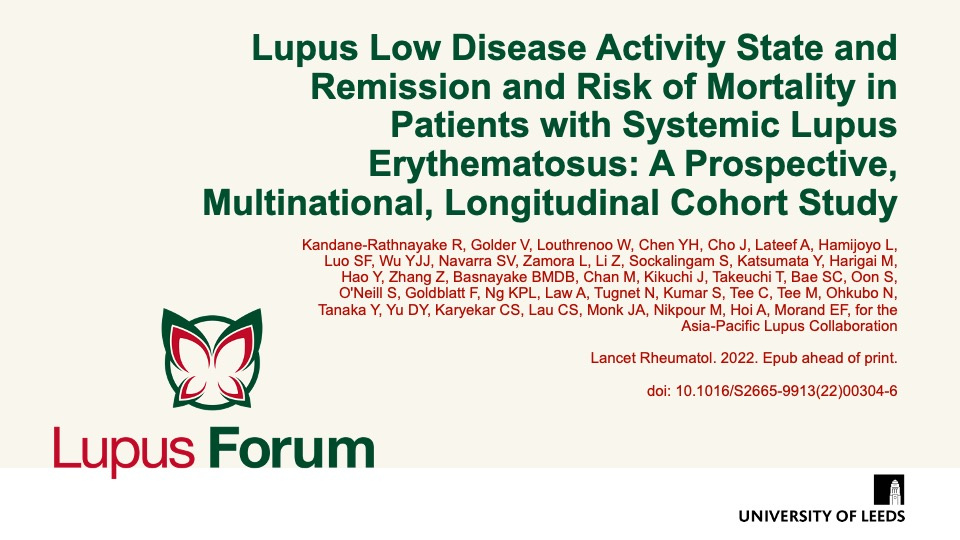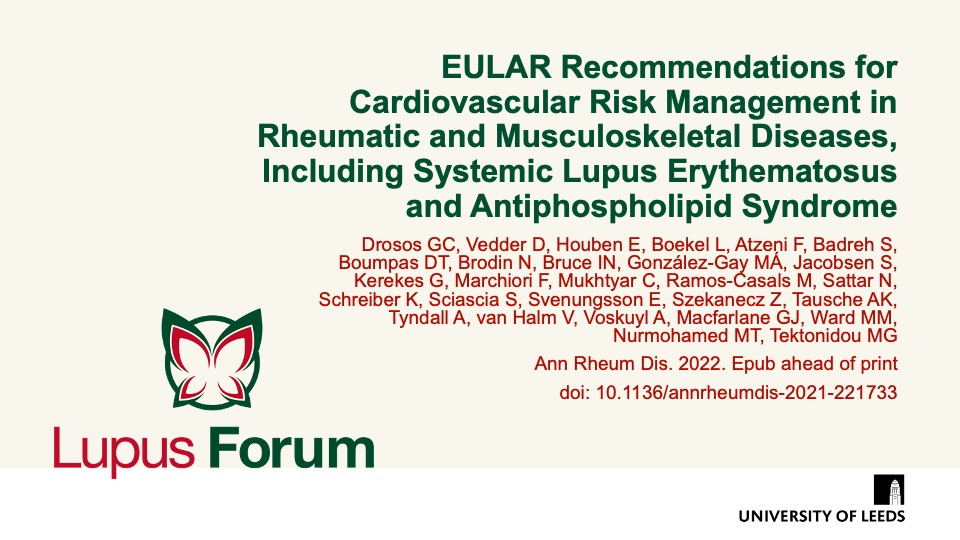Publications
Find coverage of the latest original articles on Lupus, focusing on those with data on therapeutic interventions and those that have clinical impact.
November 2022
Lupus Low Disease Activity State and Remission and Risk of Mortality in Patients with Systemic Lupus Erythematosus: A Prospective, Multinational, Longitudinal Cohort Study
Lancet Rheumatol. 2022. Epub ahead of print. doi: 10.1016/S2665-9913(22)00304-6
Lupus low disease activity state (LLDAS) significantly reduced the risk of mortality in patients with SLE.
Keywords:
March 2022
EULAR recommendations for cardiovascular risk management in rheumatic and musculoskeletal diseases, including systemic lupus erythematosus and antiphospholipid syndrome
Ann Rheum Dis. 2022. Epub ahead of print doi: 10.1136/annrheumdis-2021-221733
EULAR recommendations can guide clinical practice and future research for improving cardiovascular risk (CVR) management in rheumatic and musculoskeletal diseases.



